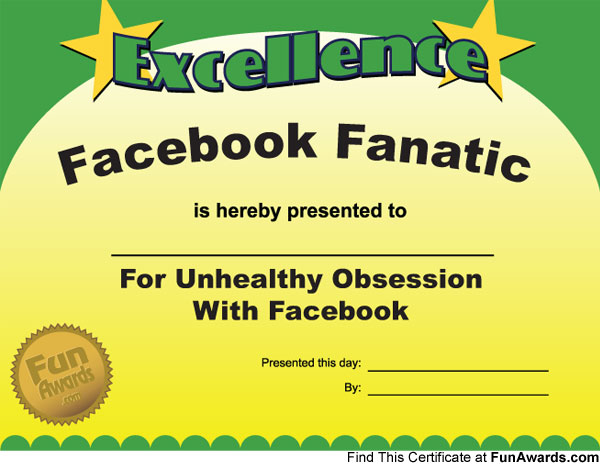 I’m a Facebook addict. I admit it.
I’m a Facebook addict. I admit it.
I check my account every hour. I get excited when I see another person “liked” my status update or when I have a new friend request. I lose track of everything as I pour through my friends’ status updates, clicking the “thumbs-up” on some newly released baby pictures and giving birthday wishes to those celebrating their special day.
Luckily, I have a support group for my addiction. I call the group “my students.” In general, my students are even more obsessed with Facebook than I am. They make status updates when they go to the mall, eat dinner, watch TV or take a nap.
With that in mind, I have found many ways to productively utilize the site in my classroom.
The best thing I have done, at the suggestion of the technology director for my district, is create a Facebook profile solely for school. As “Dan Greenberg-Teacher,” I don’t post updates about my excitement over the upcoming Van Halen concert. Instead, I post homework assignments. Instead of composing a note comprised of my answers to a recent survey floating through the Facebook universe, I post journal prompts or assignment guidelines. Instead of sharing a link to a Youtube video showing a Browns fan ranting after a recent loss, I share a Youtube video my colleague produced, which shows students how to write a paper in MLA format.
I could complete any of the above school-related tasks through emails with students, but the fact is, my students are much more likely to use Facebook than email. When students want to get in touch with me, they do so through Facebook, not email. Typically, the night before a report is due, students will post questions to me on my “wall.” This works out well, because, not only can I quickly answer the question for the student that asked, other students can see the dialogue and get some clarification too.
My teacher account is not for students only. Several of my students’ parents are on my friend list, so that they are aware what’s happening in class on a day to day basis.
Whether it’s parents or students, I have a policy of not requesting friendship on Facebook, as part of my general philosophy of using caution when it comes to my profession and social media. There are many students with whom I have great relationships, but I worry that a parent or outsider might deem me “creepy” for requesting to be friends with a 15 year old girl.
 Beyond online Facebook use, I use the Facebook concept in class to enhance students’ understanding of literature through character analysis. A few years ago, one of my colleagues created a blank Facebook profile template, which included areas to give information about a person, like education, interests, friendships, etc. She distributed the template to her class as she taught The Great Gatsby. Students then created a Facebook profile for one of the main characters in the novel. The kids’ enthusiasm for the activity was palpable, and many went beyond the minimum and did a great job synthesizing information about the characters. This activity worked so well that I and several other English teachers integrated it into our novel units for various books.
Beyond online Facebook use, I use the Facebook concept in class to enhance students’ understanding of literature through character analysis. A few years ago, one of my colleagues created a blank Facebook profile template, which included areas to give information about a person, like education, interests, friendships, etc. She distributed the template to her class as she taught The Great Gatsby. Students then created a Facebook profile for one of the main characters in the novel. The kids’ enthusiasm for the activity was palpable, and many went beyond the minimum and did a great job synthesizing information about the characters. This activity worked so well that I and several other English teachers integrated it into our novel units for various books.
The success I have seen with Facebook has encouraged me to try other social media applications, like Twitter. I have recently started an account for my classroom which I use to tweet daily assignments. So far, I have about 10 of my students following me, compared to the 200 past and present students on my Facebook. I am open to trying whichever programs my students use if it can improve my relationship with a student and improve his/her performance.
Social media, like Facebook, can be intimidating, especially when it comes to using it in the classroom. However, embracing it and exploring safe and effective ways to use it can be rewarding for teachers, parents and students. If nothing else, it’s a great way to get your daily Facebook fix.
By Dan Greenberg, Sylvania Education Association


